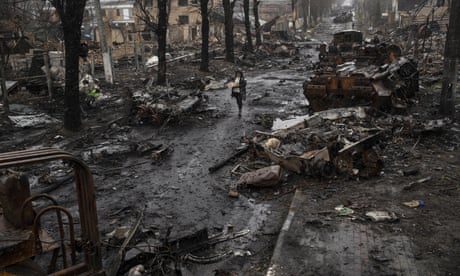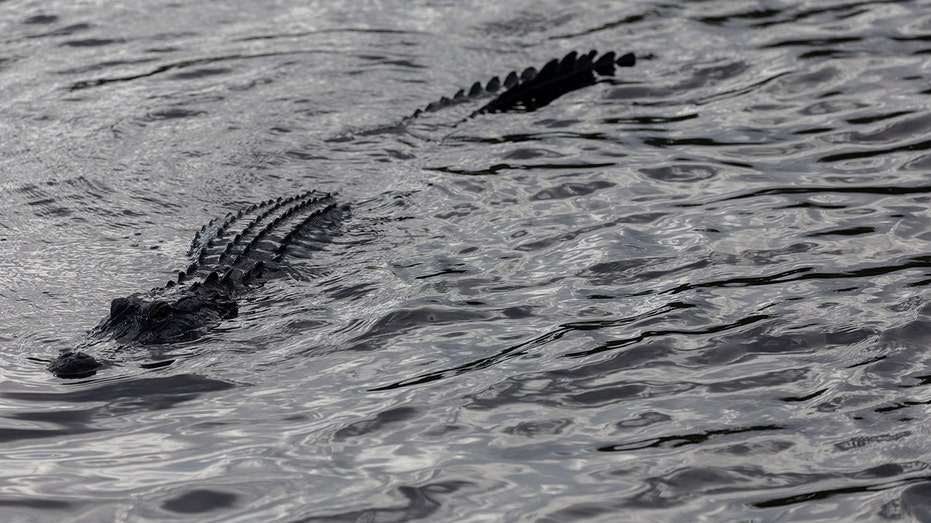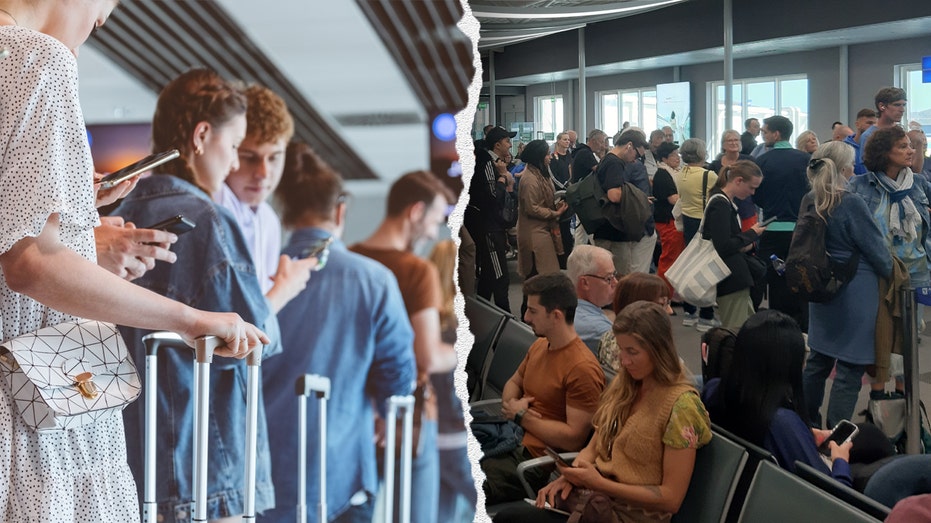- by foxnews
- 06 Mar 2025
‘Why did they do this to us?’: Bucha’s survivors come out of hiding
‘Why did they do this to us?’: Bucha’s survivors come out of hiding
- by theguardian
- 05 Apr 2022
- in news

Those seeking a quiet life, tired of the price and pace of Kyiv, once came to live on Vokzal'na Street in the small town of Bucha, 17 miles north-west of Ukraine's capital. It was known as "little Switzerland", so comfortable was the living.
Today, Vokzal'na is burned out, its broken homes and the churned-up military hardware littering the muddy quagmire of what was the road make up some of the defining images of the devastation wrought by Vladimir Putin's war.
It is barely conceivable that anyone could have survived what was thrown at Vokzal'na from both sides during what was clearly a vicious battle on the road to Kyiv.
There is not a brick unscathed nor a patch of mud that will not have been mixed with blood. But, now that the Russians have gone, Vokzal'na's residents are emerging from their cellars, tired, tearful and angry.
Serhiy Savenko, 43, who lives with his mother, Larisa, 72, at No 35, had counted the Russian armoured vehicles as they had rolled past at 9.10am on 27 February, heading south towards the neighbouring town of Irpin and on towards the capital.
"There was 70 of the armoured vehicles, like tanks, and Russian soldiers walked alongside," he said. "It took about 40 minutes for them to pass our house. I watched and counted. And then the Ukrainians launched their shells at the Russians."
The first took out Savenko's shed in his large garden at the back. It was the first of many. The horribly exposed armoured vehicles tried to turn around, in panic, as the next more accurate wave of shells rained down upon them.
Thirty minutes of devastation ensued. Russian bodies were strewn across the road, hot metal flew through the air, smashing every window, enveloping the trees in fire, and turning the burning vehicles white hot.
Across Savenko's 30-metre hedge alone, nine devastated armoured vehicles were left burnt out, filling the air with the acrid smell of burning oil and metal.
Those Russians that could escape did. But an hour after the Ukrainian assault, the Russians came back to retrieve their dead - and to entrench themselves in Vokzal'na's gardens and what was left of its buildings, establishing points from which to send their artillery fire at the Ukrainian defenders. It would be a long and cruel occupation.
"We were in our cellar the whole time," Savenko said. "The Russians set up their weapons and a fire in the front garden. One came down to the cellar and saw us. He said to be quiet. He said he was a nice guy but his colleagues would get us on our knees and shoot us. They took our phones and said, no fires, as if we could make some sort of signal."
Standing outside her home at No 31, gripping a note, with tears streaming down her face, Zinaida, 62, had been in her cellar since 5 March.
On Sunday, the Ukrainian army found the body of her son-in-law just around the corner. She was just about tell her daughter and 16-year-old grandson who had been evacuated and until now only knew that he was missing. There isn't any internet connection in Bucha, typical of all the towns that Russia has targeted in its special military operation.
"My daughter asked him to leave their basement to pick some things up from a neighbour's house. Here is her note, he had it with him: cigarettes on the shelf near the sofa, pills, groceries, slippers, a blanket. He left the house on 4 March. He walked just 20 metres from the house and the Russians killed him. No warning, no reason. He was such a good father, his son loved him so much. He is disabled. How can I tell them?"
On the same side of the road at No 27, a new-build block of apartments, Ivan, 55, and Helen, 50, who did not want to give their surnames, were cleaning up the glass, shell fragments and unexploded armaments outside on the communal porch. It was something they had done throughout the ordeal. They had only moved in three months earlier. Of the eight families that had lived here, they were the only ones to stay having nowhere else to go.
"We tidied all the time, swept up. We don't have a basement anyway. We wanted to show we were not scared, I don't know," said Ivan. "But you see that high apartment block over there? Well there was a sniper and he was angry that we weren't scared and cowering. So he fired shots over our head."
On the floor of his neighbour's apartment, among the glass, and metal, was blood, as there was on the kitchen table, still wet. It was the blood of Russian soldiers who had been hiding inside, evidenced by the discarded food wrappings.
Across the road at No 32 there is nothing left other than the remnants of some walls. Next door, a frame of what was a garage. Volodymr Matsyk, 62, and his wife, Lydmyla, and their two sons, Artem, 33, and Bodgan, 20, stayed underground in the cellar as their world above was blown away. They have been evacuated. But neighbour, Dymytro Zamogylny, 56, said an injured Russian soldier who had been taken there to receive medical assistance had not been so fortunate. "A bomb landed right on the house killing him," he said.
At No 23, Oleksandr Loza, 87, had been found laid out on the ground in his pyjamas, unable to move, after the initial fighting of 27 February. He has since been evacuated.
The nextdoor neighbours' handsome green roof at No 25 was caved in by a direct hit. Its owners, cowering in the cellar, Oleksandr, 66, and Galayno, 65, who had been the chief carers to their elderly friend next door, miraculously escaped with their lives.
Bucha is a blackened, hollowed out mess. Bodies of civilians continue to be discovered.
On Monday, officials took away five bodies of men seemingly tied up and shot by the Russians in the basement of a summer residence for children. It was also claimed that human remains found near the town were Olga Sukhenk, the mayor of Motyzhyn, and her husband and son.
Visiting the town on Monday, Ukraine's president, Volodymyr Zelenskiy, spoke on national television about what he had seen.
"These are war crimes and will be recognised by the world as genocide," he said, wearing body armour and surrounded by military personnel. "We know of thousands of people killed and tortured, with severed limbs, raped women and murdered children."
Around the corner from Vokzal'na Street, close to where 21 civilians were found scattered across one of Bucha's main roads on Saturday, Sergiy Zebenko, 57, and his wife, Helen, 49, showed the grave of their cousin, Dmytro Bernastsky, 59, in their garden. "We found his body on 31 March just 150 metres from us and buried him here," said Helen. "But we don't even know when he was killed, maybe 10 days earlier when he was coming to see us. He had three bullets in his left leg, one to his heart and one to his lung. He was by the supermarket. We want to rebury him. He was a pilot in the Ukrainian air force. We want to bury him in his uniform, it needs to happen. Why did they do this to us?"
- by foxnews
- descember 09, 2016
'Gate lice' run-ins have flyers demanding more airlines 'crack down' on pesky travel trend
Passengers are asking major airlines to do something about "gate lice" problem at airports. American Airlines currently has new tech to stop the line-cutters.
read more


